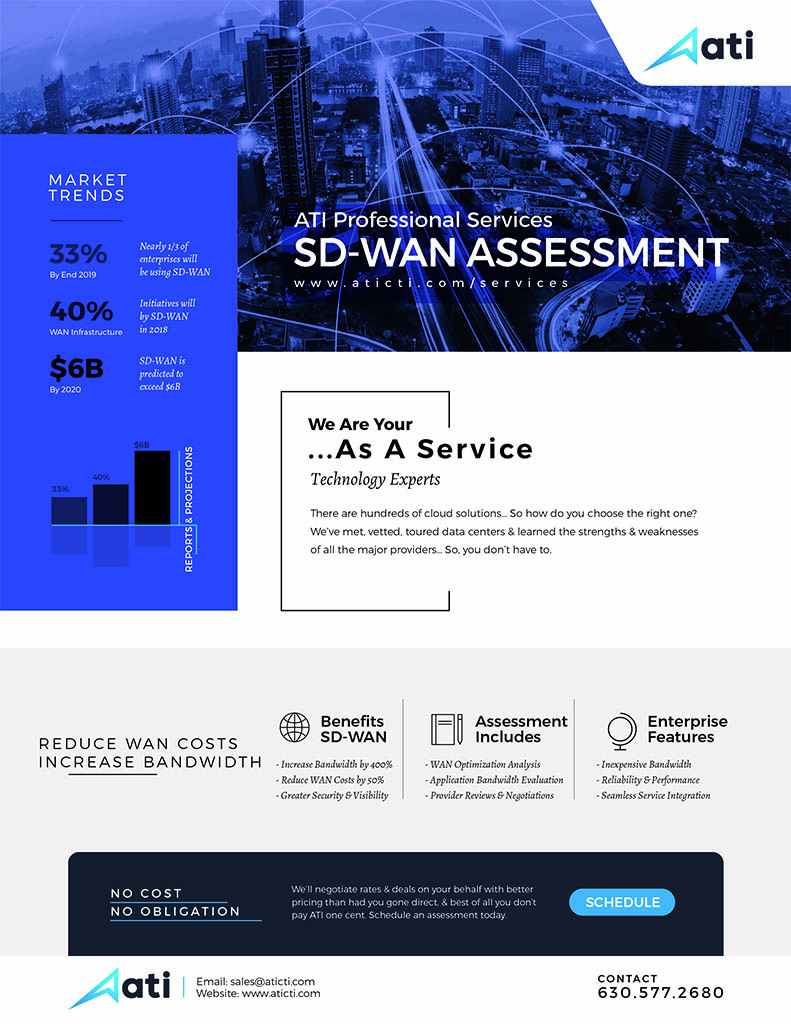From ATI
SD-WAN (software-defined WAN) is a wide area network deployment method. Using virtualization and application, SD-WAN controls and establishes WAN (wide area network) and devices across branch offices.
Sign up for a no obligation SD-WAN assessment today and get a WAN optimization analysis and bandwidth evaluation.

